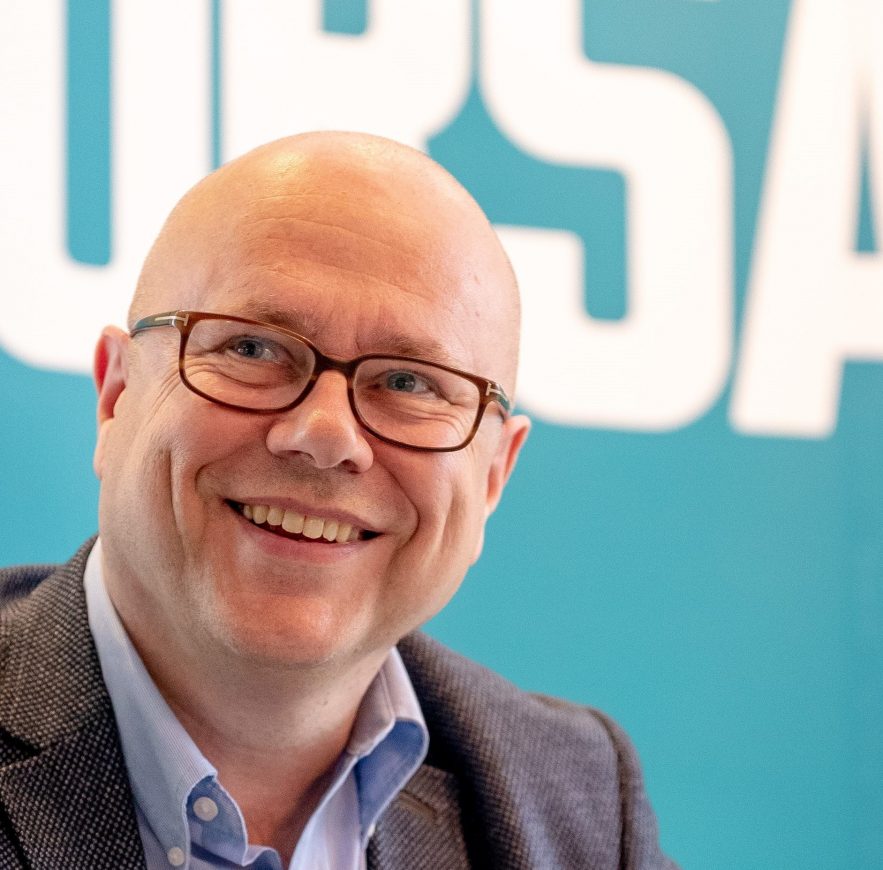ICTU president Kevin Callinan has said that the cost of living must continue to be the main focus for unions in public service pay talks this year.
Kevin is Fórsa’s general secretary and chairs the ICTU’s Public Services Committee (PSC). He made the comments this afternoon (Monday) in his address to the INTO teachers’ conference which is taking place in Killarney.
The current public service pay agreement, Building Momentum, expires at the end of 2023. Talks on a successor agreement are expected to take place in the coming months.
Kevin told delegates that unions will concentrate on a number of key cost-of-living issues during expected pay talks, including the need to “make good the shortfall in pay against inflation” during the remaining term of the current pay agreement.
He said this would be in addition to factoring in the effect of the cessation of Government cost-of-living measures and supports, and in anticipation of cost-of-living projections over the period of any proposed agreement.
He said unions were clear that last year’s Building Momentum review didn’t fully compensate for the rate of inflation, which averaged 8% over 2022.
He added: “When workers were weighing up the terms, they were mindful of government statements of intent to introduce various measures, including budgetary tax changes.
“We’ve already made it clear to government and employers, if these supports are withdrawn and if prices remain elevated – as they surely will – the shortfall will have to be made good in wage bargaining across the economy.”
Greedflation
Kevin said the relatively recent advent of inflation has led the European Central Bank (ECB) to identify excessive company profits as a bigger driver of inflation than wage demand.
He added: “Many commentators are quick to try to dampen down wage demands with talk of a wage-price spiral. Working people can see through those arguments, particularly when they are exposed to obvious price-gouging.
“To be clear, there can be no sustainable case for wage moderation while inflation continues to be driven by excessive company profits, neither in the public or private sector,” he said.
Public service employment
Kevin said recent growth in public sector employment is “merely a recovery of ground lost as a direct result of the 2008 financial crash”, adding that public service capacity shrank during the austerity years, while a growing population continued to place a demand on services.
He added: “The growth of public service employment is not keeping the required pace. It has increased by barely more than half the rate of population growth in the Republic,” and said even moderate predictions of population growth anticipates an increase to 5.4 million people by 2036.
Kevin said that, at roughly 7%, Ireland’s public service employment, as a percentage of total population, looks “completely out of step with most of our EU partners.”
He said an appropriate comparison in this context was with Denmark, where public service employment is closer to 13%, while in Croatia the figure is 8.5%.
He said poorly resourced public services and inadequate infrastructure is holding back the potential of the Irish economy, in addition to “causing real hardship for many who can’t access housing, essential healthcare or affordable childcare.”
Commenting on the recent upsurge in anti-immigrant commentary, he said: “Effective social dialogue can counter that kind of populism. It can help to replace short-term thinking with long-term planning, designed to meet the multiple challenges of our times and allowing the country to move forward more united, provided that the social dialogue is based on adequate levels of social protection, collective bargaining as the norm, and quality public services,” he said.
There’s never been a better time to join a union, and it’s never been easier. Join Fórsa today.

